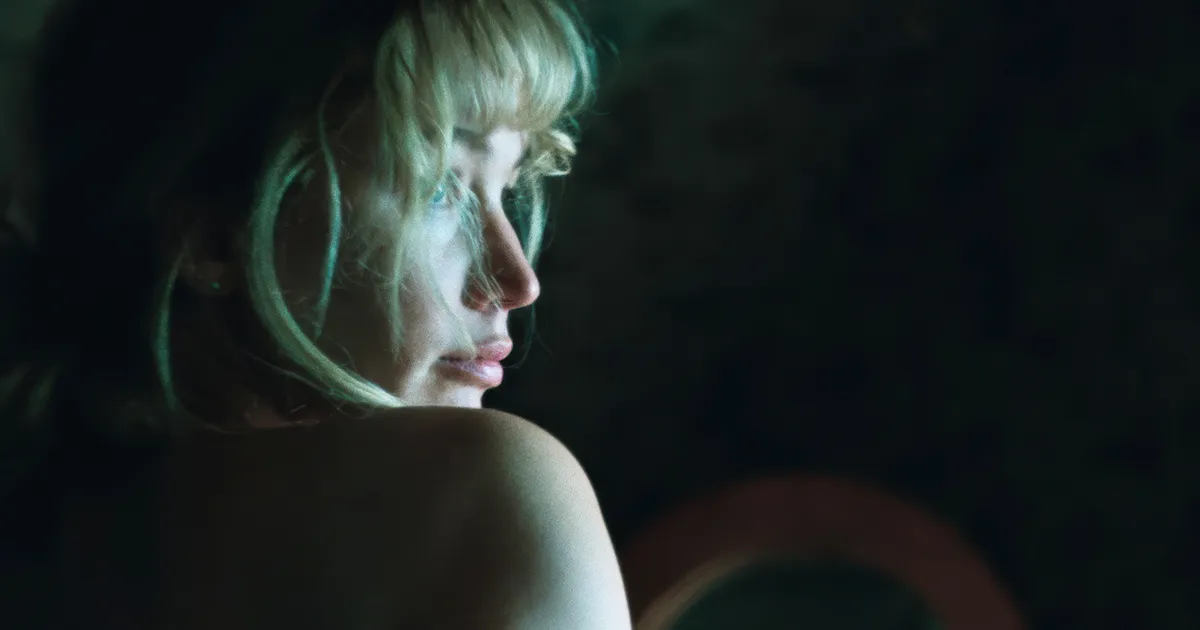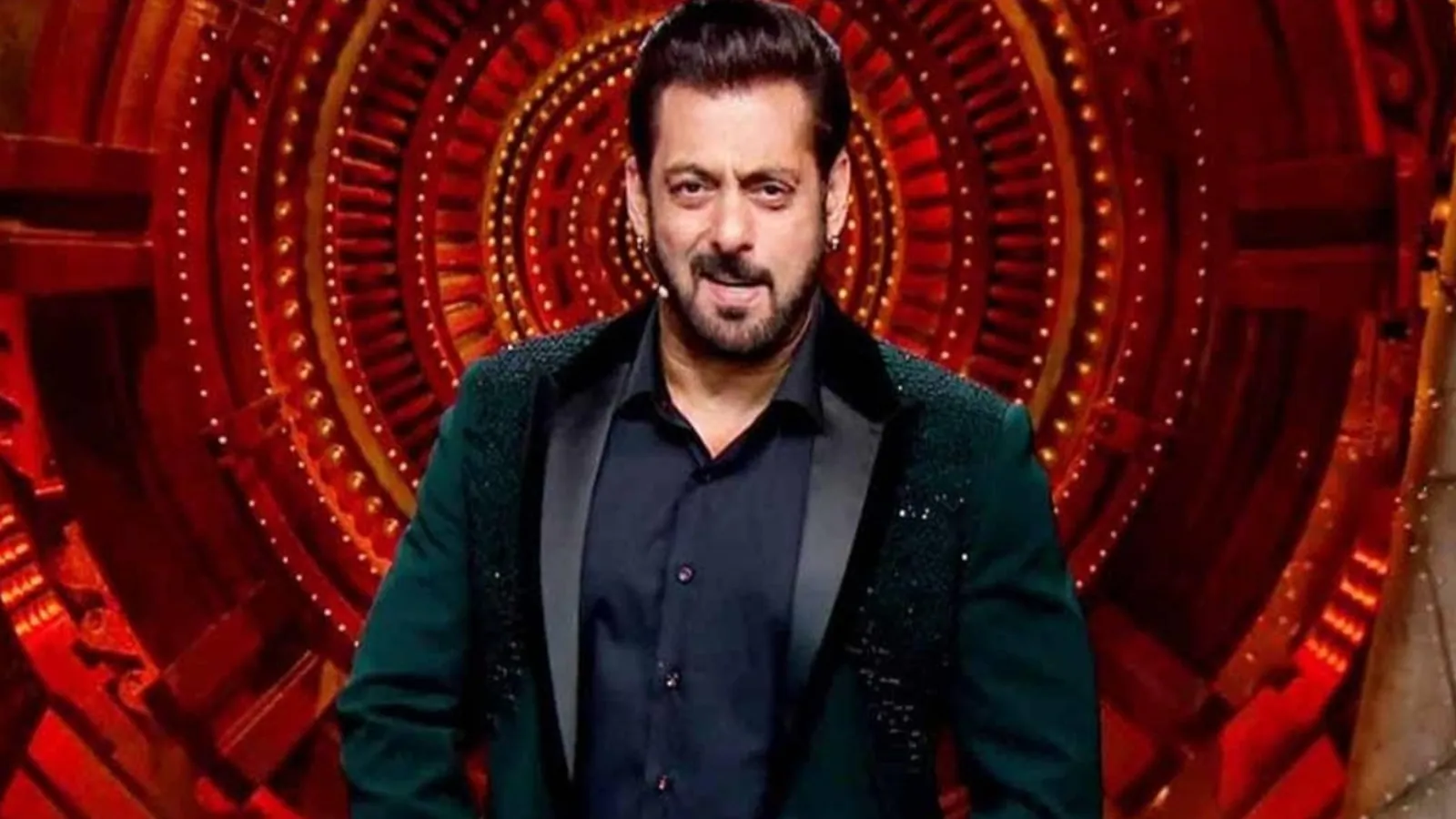Copyright Vulture

In Lynne Ramsay’s Die My Love, Jennifer Lawrence unleashes, in all senses of the word. As Grace, a new mother trapped in rural Montana with only her feckless husband, Jackson (Robert Pattinson), concerned mother-in-law, Pam (Sissy Spacek), a few roaming horses, and her 6-month-old baby for company, she grows feral with lust, rage, sadness, and boredom. She growls and purrs at Jackson as they have sex on the kitchen floor. She claws at the bathroom walls until her fingernails bleed. She masturbates in the grass with a knife in one hand. She tries to jump out of a moving car. She throws herself through a glass door. She yanks a sink out of the wall. It’s a dynamic, destructive, and often incredibly funny performance, one that’s already garnered Oscar buzz. Lawrence was the first person to sign on for the film. Martin Scorsese, a producer on Die My Love, came across the novel of the same name at his book club and thought the main character would be a perfectly challenging role for Lawrence. She then began a campaign to get Ramsay to direct — as a longtime fan of her work (particularly her debut feature, Ratcatcher), Lawrence could only envision the film if it were brought to life with the Scottish filmmaker’s trademark expressionistic intensity. Earlier this week, after a screening of the film, I sat down with Ramsay and Lawrence — who wore a black gown from The Row on her way to the CFDAs and greeted the audience with, “I realize I’m overdressed; I’m going somewhere after this. I’m not a freak” — to talk about postpartum drama as a genre, what it’s like to film nude sex scenes while pregnant, and what that fiery ending was all about. (Die My Love spoilers ahead.) A lot of the reviews have described this as a movie about postpartum depression. Lynne, at Cannes, you said, “That’s bullshit,” and I’m really interested in hearing what this film is about to you. Lynne Ramsay: God, I don’t remember saying that! [Laughs] But yeah. It’s not just one thing. It’s about a marriage breaking down. It’s about when you feel isolated, about creativity drying up. I think it’s just too black and white to go, “It’s this thing.” I think people like those sound bites, but that can be too reductive. To me, the whole film is an experience that you go with or not. It’s based on a novel that’s a dark fairy tale, kind of surreal, and a character who’s very unapologetic, irreverent. It was quite liberating, in a way, to see a character like that portrayed. Jennifer, did you see it that way when you read the book?Jennifer Lawrence: When I read the book, it was clearly about postpartum. But I was just so blown away by this character. It’s a once-in-a-lifetime kind of role. It reminded me of Gena Rowlands and A Woman Under the Influence, but if you could go into her mind and heart. And it wasn’t really until Lynne and I started having conversations before getting to set — and even before she’d written a scene — that everything got so much broader. Especially when we brought in Rob. Rob and I were in similar places in our lives: We’re new parents and we’ve got partners. Having so much detail to add to that dynamic, I feel like the postpartum aspect really ended up just being an engine for this incredible character in an extreme situation, and for this really special relationship that’s struggling to survive the circumstances. You told me backstage you’ve seen the film 11 or more times now. Does it change each time you see it?JL: Really, of all the movies I’ve ever done in my life, this one has been the most transformative. Because when I was making it, everything was very real to me. Obviously, to Grace, none of it is a fever dream. It’s all very factual. I don’t even remember making that choice — to just believe it and for it to be real. It just was. I was also pregnant, so I think there were certain realities that I just couldn’t look at and I couldn’t see. Like, I was told that the No. 1 cause of death for new mothers is suicide. But I don’t know how else to describe it other than — I just couldn’t see that. Then I watched it when I was nine months pregnant. That was when I was like, Oh, wow. A lot of that wasn’t real. It was a fever dream. Wait, this is metaphorical. Whoa. Lynne was like, “Yeah.” And Rob was like, “I thought it was weird that you kept saying, ‘Maybe they get back together!’” I just took it all very literally. Now, looking back, I’m like, I hope that was a choice and I’m not just stupid. Then I had a baby, and I had really bad postpartum with my second one, which I hadn’t had before. So I had to watch it a few times while I was struggling with postpartum. And that was just a really, really otherworldly experience. I’ve seen the movie a few times now, too, and it changes for me in that it gets funnier each time. Lynne, you’ve talked a bit about your intended tone being a dark comedy, but do you think audiences have been grasping that right away?LR: I think some people think, God, it’s really heavy. But I always love when there’s light and dark. It was important to me that there was humor in it. I think she’s super-funny sometimes. She’s really inappropriate, but she’s honest and she’s quite childlike as well. So I just was like, I know one thing: I want humor in this, and I want a bit of love. Because anything too black and white — it just didn’t feel right for this character. Because she’s a strong character. She’s been through all this stuff. She’s bold. I do feel like she’s really fun, and I’d like to hang out with her. L.R.: Well, I don’t know if I’d go that far. [Laughs] She just seems like she’d be a fun hang. And there’s a reading of the film where she is the only one who is not crazy. The things that are happening around her are insane: Her husband won’t sleep with her. Her mother-in-law is sleepwalking with a gun. Everyone is talking to her about postpartum depression and her mental health. She’s refusing to conform in a way that feels cathartic to watch. If you met her at a party, what advice might you give her? L.R.: Don’t burn the forest down! [Spoiler: At the end of the film, Lawrence’s character lights a forest on fire. More on that scene — and further spoilers — below.] J.L.: I was just going to say, I would tell her to get on medication. And to cheat. Because I thought she really was cheating in the movie! And then I watched it back, and I think maybe she didn’t? I don’t know. Lynne, what do you think? Do you think she was cheating with her neighbor (LaKeith Stanfield)?L.R.: Oh, I’ll leave that to you guys. I think she thinks so, yeah. It’s real for her. But it goes off the principles of this novel in a way — LaKeith’s character, Carl, is a fantasy, because she isn’t having sex with her husband. But he’s too frightened of her, I think, to have sex with her. As you said, she’s childlike and straightforward in this way that I found endearing. Jennifer, you’ve been speaking on this press tour a bit about how you’ve been, historically, a straightforward, straight-shooting person. Did you find yourself relating to that aspect of Grace?J.L.: I didn’t, but that might just be a lack of self-awareness. I think that it helped me more performance-wise to just keep that in mind — that nothing with her was performative. It was all just very factual. Lynne, you described Jennifer as “punk” in an interview recently, and I want to know what you meant by that.J.L.: Oh my God, 13-year-old me would die. Yeah, what did you mean? L.R.: I meant in a very British way: punk. There was something so liberating about seeing a character be this outlandish and impossible and endearing. I think that it felt like a punk kind of spirit. Very bold. J.L.: Well, Grace is very punk. I was a cheerleader. I had pink Vans. L.R.: Yeah, Grace is punk. You were a cheerleader. You’ve both previously made films about the dark side of motherhood. We Need to Talk About Kevin and Mother!, as two examples. L.R.: That was a romantic comedy. [Laughs] Well, yes, of course, it was a rom-com as well. What draws you both to that well? L.R.: Kevin was really about this war between a mother and son, and a mother feeling like, Do I love this person? So this was totally different in a way, because I think Grace really loves her kid. I think there are many other things going on for Grace. I suppose, in my mind, in the backstory, she had been really creative. And there had been previous episodes there. The things Jackson loves about her — that she’s wild and she’s sexy and she’s on the edge — then get to a point where he’s like, What the hell do I do about this? You can’t try to change a spirit like that. If he tries to change her too much, she’ll never be the person who he fell in love with. J.L.: Yeah, I think there’s no greater stakes than becoming a mother. And that’s very fruitful for change. While you were filming Mother!, you tore your diaphragm. It was a similarly physical performance here. How did you protect yourself this time around from that kind of physical experience? J.L.: I didn’t really have to go to that same place, because nothing happens to the baby in this movie. With Mother!, having to imagine losing a baby — and losing a baby in that way — was horrific. I wasn’t even a parent yet, but it was really, really just devastating and horrible. With Grace, now I have an awareness, as a mother myself, for how important stability and consistency is to these tiny little nervous systems. But I’m not Victoria and Kennedy’s — who are the babies in the film — mother. I tried to be really involved with them so that they were comfortable with me, but if they saw me running past them or doing something weird, it wouldn’t change the course of their life. They would just be like, Oh, that lady’s doing something weird. I wasn’t, like, their safety rock. So I think the situation, while it probably feels similar as an audience member, to the person doing it, it felt very different. When I spoke to you during a SAG screening last weekend, you mentioned that there was something really freeing and refreshing about working with Lynne and working with female directors in general. You said something about how men really feel like they need to declare, “I’m directing this.”J.L.: Not all men! [Laughs] But I have found a commonality in female directors, which is that they do not do this thing, which is overdirect. There have been some times when I’ve worked with male directors where there’s this need to constantly feel like they’re directing the movie. And it’s not even really getting anything done. It’s just annoying. When I think auteur, my mind kind of goes to controlling and … what’s that word? Neurotic! And Lynne was the opposite. She really built this world and made sure that we were all on the same page, through music and conversations and the atmosphere and the set. And then she would just kind of slowly walk back. And sometimes, from the discomfort of that, from the lack of her visibility, something interesting would come from it. And then she would come out and be like [affects a Scottish accent], “That’s great, great, yeah, do it again.” Or we would accidentally laugh and be like, “Oh, sorry.” And she’d be like, “No, it was great. I liked that you laughed. Do it again.” Really good impression.J.L.: Thank you. L.R.: That’s a terrible Scottish accent. J.L.: No, it’s not. Lynne, can you speak a bit about your philosophy as a director? How do you balance that sense of freedom and safety?L.R.: It depends on each film. Some are more super-precise constructions — you’re doing a certain frame in a certain way. But for this, I knew I wanted the actors to be pretty free. I love working with actors. When you really trust each other, something just happens that’s magical. So sometimes I’d let the take run long. There’s a kind of discomfort in that. It’s like, What the hell did we do now? But then something happens sometimes. I gave them the space in that house to just explore and go in and out of doors. There was one scene where Grace is just bored in the house and there’s that laundry basket, and I didn’t ask her to tip it over with her toe, but there’s a kind of rage in that. And then I didn’t ask her to go to the window and lick the glass, but there’s something hilarious about that, and also trapped and feral as well. So I think it was just giving them the space to let these little moments come through. When you’re in that space and the camera is still running and you’re about togo lick the window — what’s going through your mind? J.L.: I always get nervous before they call action. I get embarrassed. I think the camera guys are like, “Haha, she’s acting!” Which is stupid, but I do. I get a little nervous that I’ll get embarrassed in front of the boom operator and the camera guys. And then they call action, and my mind fortunately focuses elsewhere. It’s like she said, the trust that we have — it all finds its way to the right place. And I think, weirdly, because I was pregnant — being pregnant feels really animalistic. I felt beastly. There are these new parts of your brain that are waking up, and you’re protective and you’re focused, really dialed in. And so that kind of fed into this trapped-animal, pacing-the-cage-kind of thing. And so then she calls action and … You really employ your pregnant body in this movie. When you were doing all of these nude scenes pregnant, did that feel like an added layer of protection for you? Or did it feel more exposing? Versus the nude scene in, say, No Hard Feelings, which is obviously comedic. J.L.: I don’t care about nudity. I just don’t. I’m not sensitive about it. I wanted Lynne to have total freedom artistically. I wanted her to be like, Look at that window, look at the light. Go stand naked in front of it. And I think being pregnant took a lot of vanity anxiety away. Before No Hard Feelings, I was dieting and not eating carbs and working out. Here, I was pregnant. What was I going to do? Like, not eat? Work out? I was working 15 hours a day. I was just tired. So, yeah, it felt really freeing. I remember them sending over a close-up of cellulite and being like, “Do you want us to touch this up?” And I was like, “No, that’s an ass!” L.R.: Which I’d have loved. J.L.: Yeah, you would’ve been pissed. You would’ve never even said yes. L.R.: No way. The scene where Grace is drinking beer and dancing to “Hey Mickey!” in front of the baby — it seems like she’s having a bit of actual fun there. What is your version of that, where you’re just bored with your kids and you’re like, I’m going to entertain us both.J.L.: My youngest one, this gets him every time [makes a fart noise with her mouth]. It’s the oldest comedic trick in the book. And I can’t do this with the older one, but with the younger one, I listen to a podcast with an ear pod in one ear. I just listen to murder while I’m like [makes a smiley face] and he chews on things. What podcasts are you listening to?J.L.: Dateline, 48 Hours, 20/20, Anatomy of Murder, Crime Junkie, Red Crime, It Could Have Been Me, I Survived. I could keep going. Very light.J.L.: Very light. In this film, you sing several times, and you’ve sung in many of your films, but I was reading old interviews of yours where you were like, “It’s a nightmare when I have to sing.” J.L.: It is. Do you still have that same feeling of horror when you’re asked? What makes you say yes?J.L.: You can’t always say no. I mean, Emma Stone shaved her head! You can’t always just be like, “No, I don’t like doing that.” I don’t like to sing. But if I have to, I will. L.R.: I’ve got a great version of “The Beast in Me” sung by Jennifer Lawrence, which is fantastic, and I’m definitely going to put it in an album. J.L.: No, you’re a bitch and you’ll never do that! [Laughs] I read somewhere that you were writing music for her to sing, Lynne. L.R.: I write songs because films take a long time. Songs take considerably shorter, and you can write a whole film in a song. So I was thinking, To hell with this shit — waiting four years for a movie to get made. I wrote about 150 to 200 songs. It’s really liberating. It’s immediate, more like a Polaroid than the construction of film. And sometimes you need that in your life. So are you going to sing a song on an album for her, Jennifer? J.L.: I would if she asked me to. But please don’t. Okay, fine, I’ll do it. I’ll do anything for attention. L.R.: I think Jennifer has a great voice. I honestly have a beautiful version of “The Beast in Me.” We were working with George Vjestica, who is the guitarist for Nick Cave & the Bad Seeds. I was jamming with him, and I was like, You’ve got to be joking, we’re jamming with one of the best guitarists in the world. J.L.: He was trying to get me on key, and it was so sad. He was like [sings], “Meet me at C.” I was like [sings poorly], “Ahhhhhh!” How did you both read the film’s ending? Is she walking into the forest she set on fire? Is she escaping? Is she dying?L.R.: She sets it on fire. I mean, I could still be cutting this. There was a time where I felt that there were too many endings. There was an idea of her saving him, which I liked. It was quite romantic. But it’s a metaphor. You never see what she writes, and then she sets the whole thing on fire and then the forest goes up. And then you see her back in the kitchen where it began, looking at herself from outside, almost looking at this thing that he’s created — this world, how he’s done it up and made it nice. She’s almost a stranger looking at her own life. But, yeah, there are many endings. I’m going to do another director’s cut. So get ready for the three-and-a-half-hour version! No, I will definitely not do that. It will get shorter. J.L.: I think the ending is a mother’s worst nightmare, which is, They’re better off without me and I’m the worst part of them. Sorry. I wish I had better news.



